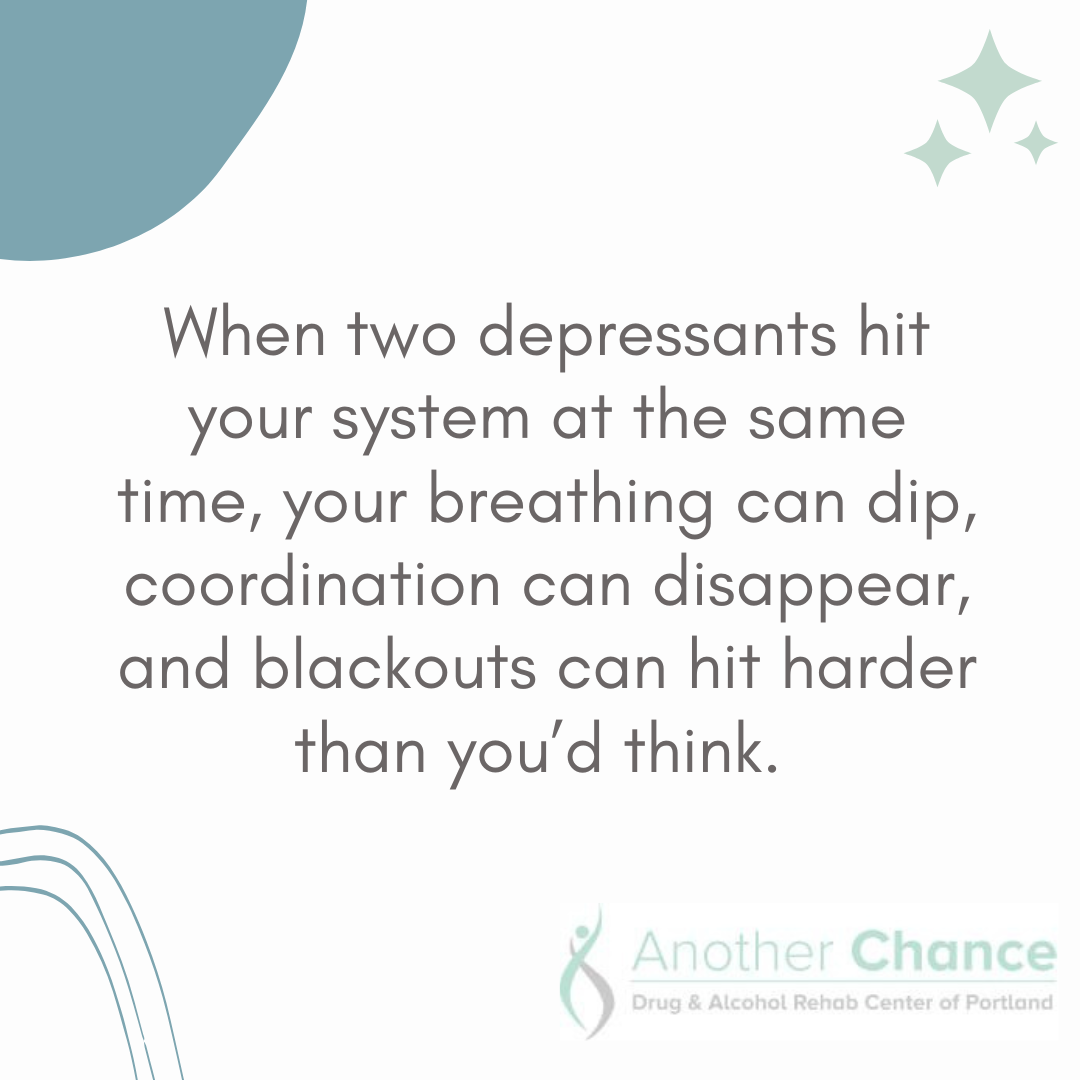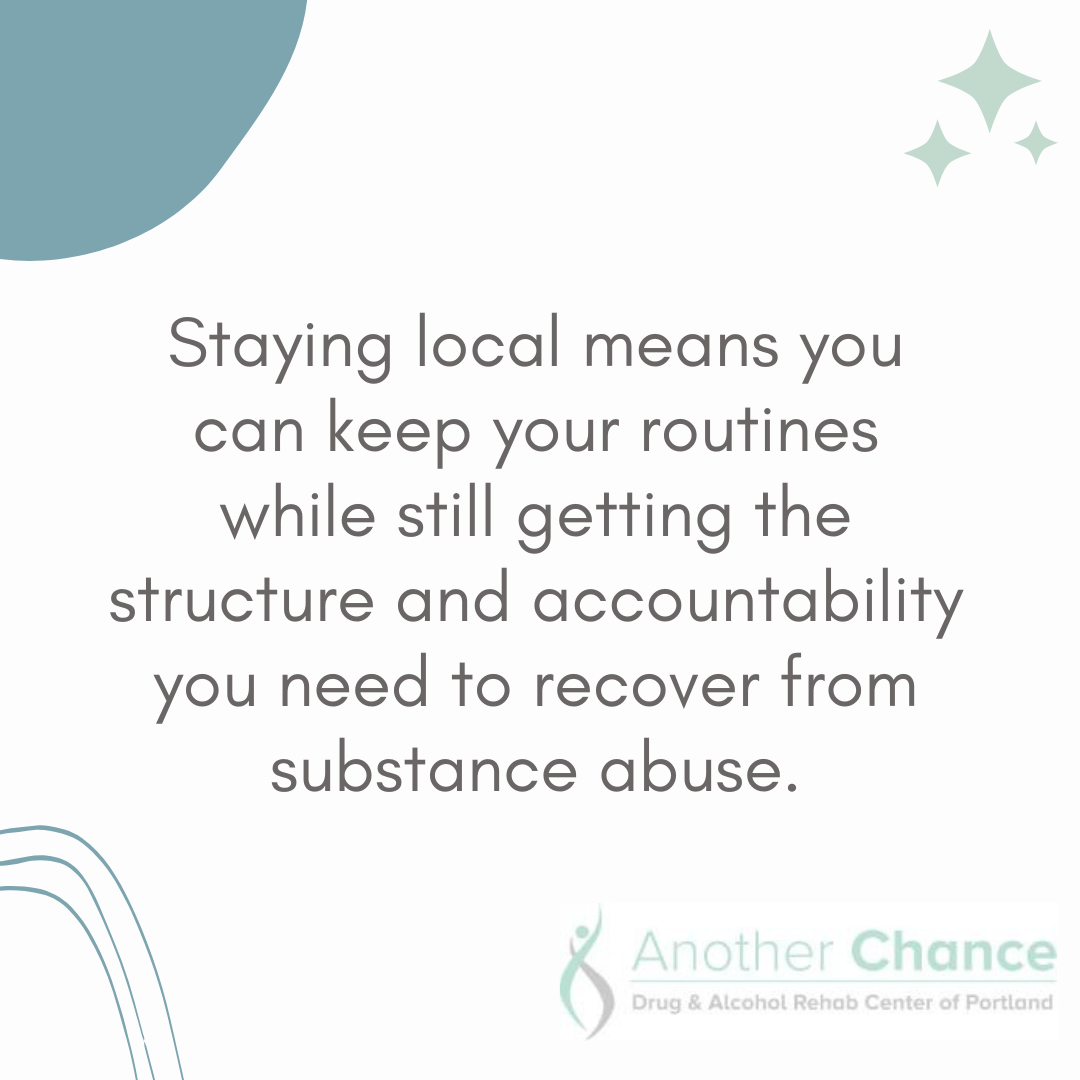October 24, 2025
Know the dangers of mixing ketamine and alcohol. Learn how addiction treatment in Portland can help you safely recover and achieve lasting sobriety.
Maybe it starts at a party: A drink in one hand, someone offering a bump of ketamine with a casual, “It’s no big deal.” It sounds harmless enough, right?
But mixing ketamine and alcohol is becoming a quiet but serious problem, especially among young adults chasing a stronger high or trying to take the edge off. What most people don’t realize is how unpredictable the combo really is. Unfortunately, many facilities offering addiction treatment in Portland have seen a sharp rise in people struggling with this exact mix.
When two depressants hit your system at the same time, your breathing can dip, coordination can disappear, and blackouts can hit harder than you’d think. Over time, that “fun night out” can morph into dependence.
In this blog, we’ll break down why combining ketamine and alcohol is so risky, what the immediate and long-term effects look like, and how Portland’s recovery programs can help you stop drinking and, ultimately, reclaim your life.

Mixing ketamine with alcohol might feel like it amplifies the buzz, but what’s really happening inside your body is a dangerous slowdown.
As stated, both substances are central nervous system depressants. Meaning, they tell your brain and body to hit the brakes. When combined, that message gets doubled, and your system struggles to keep up.
You might feel it right away: heavy limbs, slurred speech, and that out-of-body dizziness that can turn fun into frightening in seconds. Confusion sets in fast, and even small doses can knock your coordination and awareness completely off balance. It’s not just feeling extra tipsy. In reality, your reflexes, breathing, and decision-making are all dulled at once.
Then come the blackouts. The mix of ketamine and alcohol can wipe out hours from your memory, leaving you vulnerable to accidents, injuries, or risky behavior you wouldn’t normally consider.
As professionals offering addiction treatment in Portland have seen firsthand, mixing ketamine and alcohol can cause immediate and unpredictable effects that put you and the people around you at real risk. Here are some of the most common short-term dangers to watch out for:

The long-term fallout from mixing ketamine and alcohol doesn’t always hit right away; it gradually builds over time. What often starts as “weekend use” can spiral into dependence, health issues, and lasting psychological effects that are hard to reverse.
It’s not always easy to admit when casual use starts crossing the line, but there are warning signs worth paying attention to.
If you find yourself frequently mixing ketamine and alcohol, even when you promised you’d cut back, that’s a major red flag. You might also notice withdrawal symptoms when you’re not using, including:
Over time, the fallout also spreads beyond your body. Relationships, work, or school can start slipping through the cracks as your focus shifts more toward using and recovering from the effects.
Recognizing these patterns early can make a huge difference in getting help before things spiral further.
Reaching the point where you realize you need help can feel like a heavy moment, but it’s also the start of real change. Addiction treatment in Portland is built around compassion, evidence-based care, and community support. Here’s how it can help.
The first step in any effective program is understanding your story.
Addiction specialists conduct thorough assessments that look beyond just substance use. They explore your physical health, mental well-being, and personal history. This helps them pinpoint the underlying factors driving your use of ketamine and alcohol. Maybe it’s stress, trauma, or simply trying to numb difficult emotions.
Once they identify those patterns, they build a personalized plan to address those very patterns directly.
Many people turn to substances as a way to cope, often without realizing it’s a form of self-medication. That’s why modern programs in Portland focus on treating both addiction and mental health.
You’ll find therapies like cognitive behavioral therapy (CBT), trauma-informed care, and even mindfulness practices designed to rebuild balance and control. By addressing both sides (i.e., the physical cravings and the emotional roots), you’re actually healing. This integrated approach helps you manage cravings and develop healthier coping mechanisms that stick long after treatment ends.
One of the most powerful parts of recovery in Portland is its sense of community. Whether through outpatient rehab, group therapy, or local support meetings, you’re surrounded by people who truly get it.
Staying local means you can keep your routines while still getting the structure and accountability you need to recover from substance abuse. Portland’s holistic, community-based programs make it easier to stay engaged, supported, and inspired as you rebuild your confidence and move forward with clarity.

If you’re recovering from ketamine and alcohol addiction (or any other addiction for that matter), know that recovery doesn’t have to mean stepping away from your daily life.
With outpatient rehab in Portland, you can stay connected to work, family, and your community while getting consistent therapeutic support. These programs offer flexible scheduling, allowing you to attend counseling sessions, group therapy, and recovery meetings without the need for overnight stays.
If you’re focusing specifically on drinking, outpatient rehab alcohol programs provide targeted help for managing cravings, understanding triggers, and addressing the deeper causes of alcohol misuse. The goal here is to build sustainable habits that help you stay grounded and in control long after treatment ends.
If you need a bit more structure, an Intensive Outpatient Program (IOP) might be the right fit.
IOPs typically involve 9 to 12 or more hours of therapy each week, offering a higher level of care while still letting you live at home. It’s an effective balance between intensive treatment and the freedom to continue your everyday routine.
Starting recovery might feel daunting, but the sooner you reach out for help, the faster you can rebuild your health, confidence, and sense of control. Here’s why taking that first step now can make all the difference:

Mixing ketamine and alcohol comes with many risks. Simply put, it’s dangerous and potentially life-threatening. The combination can cause unpredictable physical reactions, long-term health damage, and an increased risk of dependence or overdose. But even if things feel out of control right now, recovery is absolutely possible.
With compassionate addiction treatment in Portland, you can start breaking the cycle and rebuilding your life with clarity and purpose. Whether you choose an outpatient program or an IOP, the right care can help you find balance, heal underlying pain, and regain confidence in your ability to live substance-free.
If you or someone you love is struggling, reach out to our team at Another Chance today!

Reviewer
Henna is a content strategist with over 5 years of experience in behavioral health marketing. She specializes in creating informed, compassionate content for addiction treatment centers, using her deep understanding of the industry to educate, engage, and support individuals seeking recovery.